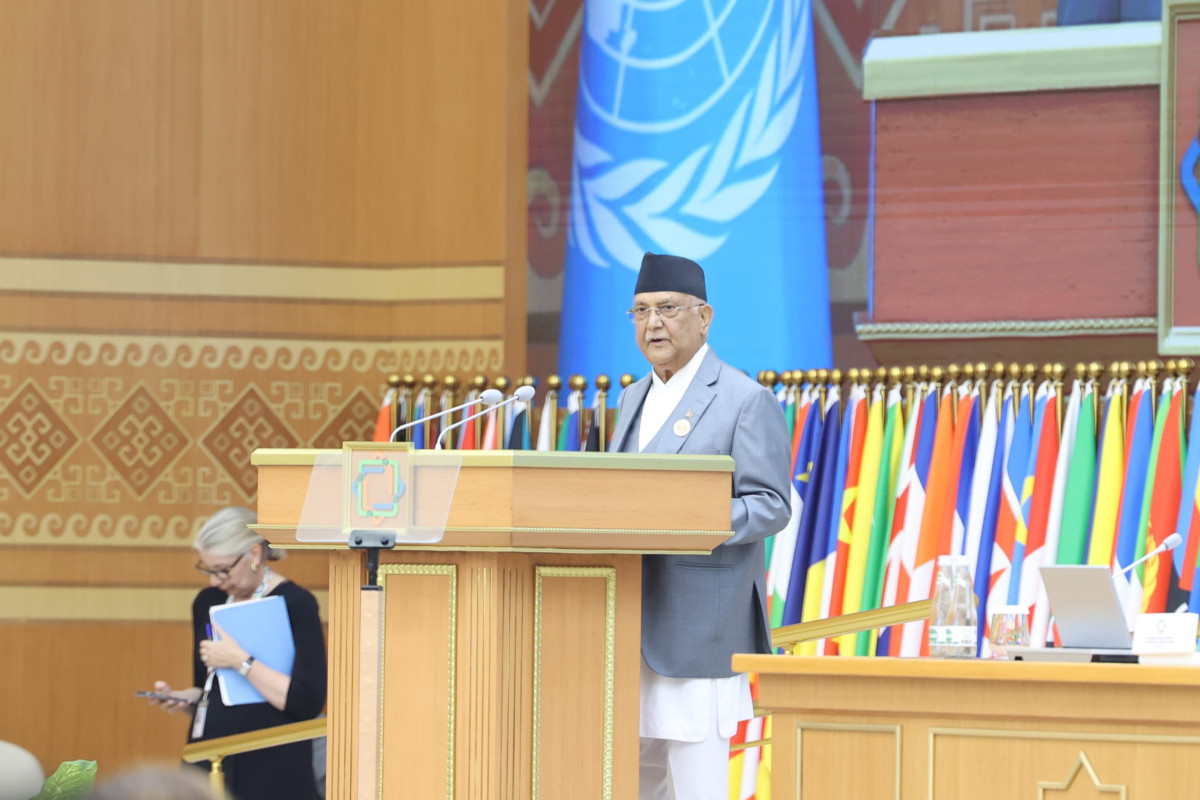

Awaza (Turkmenistan), Aug 6: Prime Minister KP Sharma Oli and leader of the Nepali Delegation to the Third UN Conference on Landlocked Developing Countries (LLDCs), has said LLDCs face a complex web of challenges for trade potentials. Lack of direct access to the seas, high transit costs, poor infrastructure, long and uncertain transit routes, limited market access, over-reliance on a narrow range of primary commodities, vulnerability to global shocks, climate change-induced disasters are among those challenges that resulted in underdeveloped and vulnerable economies of these countries. The Prime Minister said this while chairing the High-Level Thematic Roundtable 2: Seizing the Transformative Potential of Trade, Trade Facilitation, and Regional Integration for Landlocked Developing Countries held today under the Conference in Awaza of Turkmenistan. "In this interconnected and interdependent world- trade is a powerful engine of economic growth.
It can significantly contribute to socio-economic development of LLDCs, like others. But, despite their huge trade potential, LLDCs account for just over one percent of global trade in goods. And this imbalance stems not from a lack of ambition or effort, but from structural barriers," he said in his opening remarks. In this context, the Awaza Programme of Action for LLDCs has come with concrete measures for turning landlocked countries into land-linked ones by building infrastructures, investing in smart trade corridors, developing transport and logistics industries, digitalizing trade and customs processes, promoting trade of ICT products and services, deepening regional integration and fostering meaningful partnerships, he apprised the meeting. He advised that with sincere implementation of these measures, LLDCs can harness their trade potentials for inclusive and sustainable development. "For this, we need to strengthen cooperation and partnership at bilateral, regional and multilateral levels." As he stressed, we must deliver on the promise to double the share of LLDCs in global trade, expand their service exports, and foster more diversified and resilient economies. "We need to implement this Program of Action to bring prosperity to more than 570 million people living in LLDCs." He further stressed that "trade and transit rights of the LLDCs are a moral responsibility of all" and they need greater solidarity, enhanced financial and technological support, as well as fair and equitable trade opportunities.
Echoing the urgent need for collective push for fairer trade terms and transit regimes is urgent, he stressed that "LLDCs must not be left behind in the global trading system." He reminded the gathering that the Sevilla Commitment, adopted in June this year, also acknowledges the LLDC Programme of action and expresses a strong commitment to its full and effective implementation. He added that, in this context, the roundtable serves as an important reminder for urgent actions, calling for renewed commitment and global solidarity. ---
© 2025 All right reserved to Nayasadak.com | Site By : Sobij